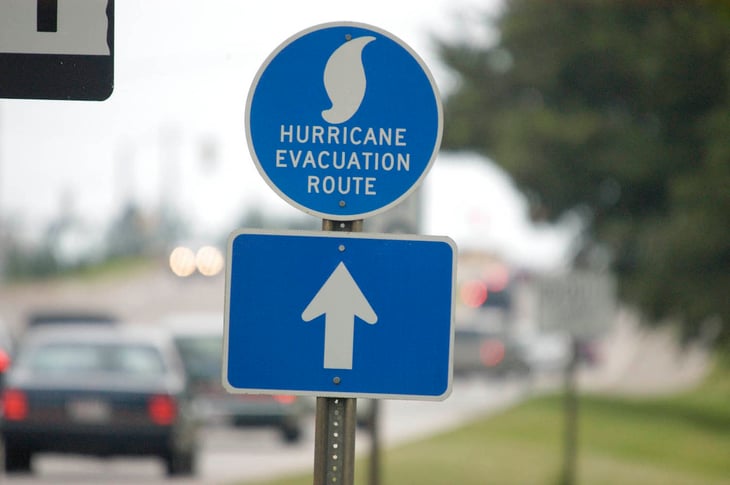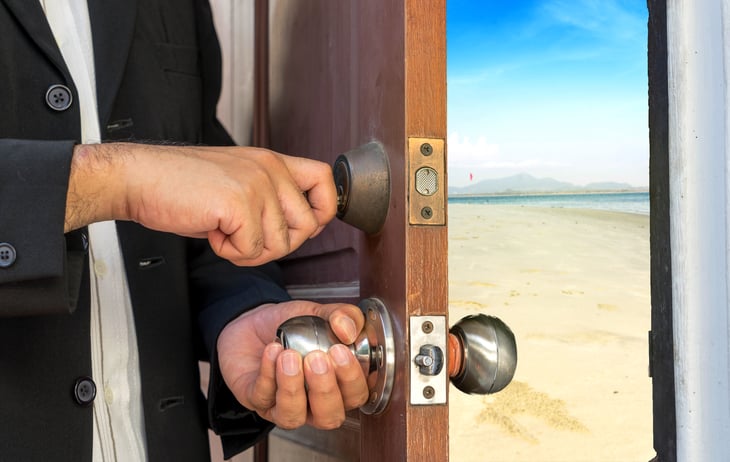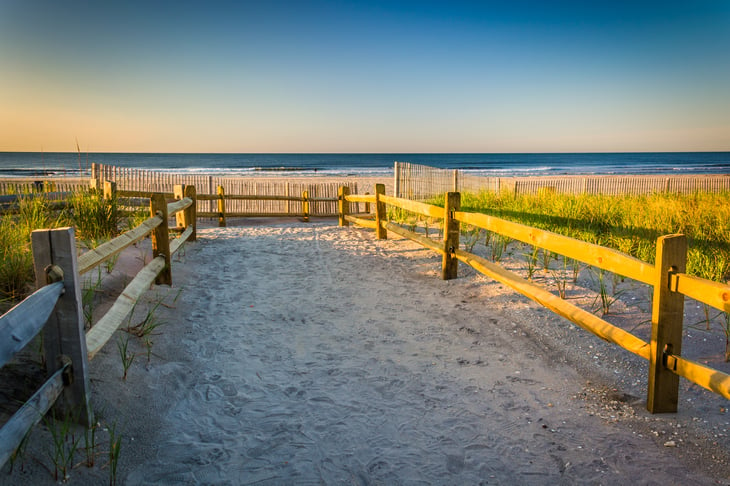Assuming climate change continues doing what scientists say it is doing, a lot of seaside property will be under water — figuratively or literally, as we reported yesterday.
But if you still want to buy something within earshot of the surf, here are five keys to getting the best investment in waterfront property you can.
1. Complete due diligence

Don’t just hope your home will still be standing and valuable by the time it’s paid off. Consult the state’s geological survey to make an informed decision about the risks that climate change pose to any home you are considering purchasing next to the water.
2. Is the house in a hurricane path or flood zone?

Before you buy a waterfront home, fully research the hurricane and flood probabilities and purchase appropriate insurance. As we’ve reported in the past, such insurance is expensive, so be sure to figure those expenses — and preventive measures you should take to protect your home — into the overall cost of the home.
3. Factor in continuous maintenance

Salt water and humidity wreak havoc on siding, pipes, paint and other housing materials. Plan to constantly sand wood, invest in impact-rated glass and maintain stainless steel and other materials. Add those costs into your oceanfront budget.
4. Plan to secure your property

Burglaries, vandalism and even the theft of boats are major concerns at waterfront homes. If you’re surprised, remember how many people treat oceanfront property as public.
Plan to invest in locks and security systems. And think twice before you leave all of your windows open at night to enjoy the breeze.
5. Remember your private home is fairly public

Even if you buy waterfront property that has private land, you can’t stop people partying on boats in the water in front of your property. And some places consider the beach public as well. For example, Hawaii is one locale that allows public access to beaches — even on your stretch of sand.
So should you buy a waterfront home? Experts recommend you think twice. And Money Talks News founder Stacy Johnson cautions against buying any large home — waterfront or not — if you have to borrow heavily.
I get it: If you have millions of dollars, you’ve got to put it somewhere, and where you live is as good a place as any.
But if you’re borrowing heavily to impress your friends with a house that’s way bigger than you need or can afford, you’re not looking rich, you’re looking crazy.
How much does climate change figure into your decisions about investments and purchases? Share with us in comments below or on our Facebook page.




Add a Comment
Our Policy: We welcome relevant and respectful comments in order to foster healthy and informative discussions. All other comments may be removed. Comments with links are automatically held for moderation.